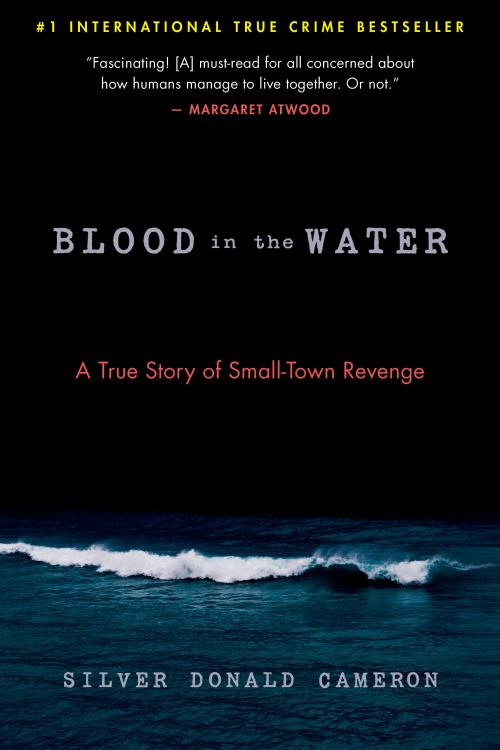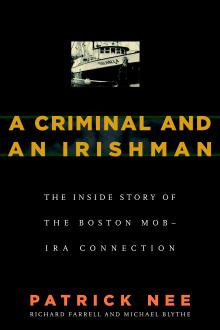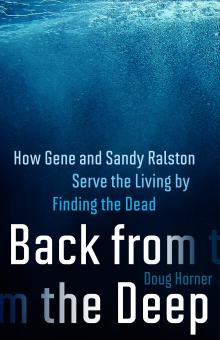Excerpt
Prologue
It was in 2013 that Phillip Boudreau was dropped—allegedly—to
the bottom of the sea, but his neighbours would not be entirely
surprised if he walked out of the ocean tomorrow, coated in seaweed
and dripping with brine, smiling.
After all, Phillip had often vanished for long periods during his
forty-three years, and he always came back to where he’d grown
up—Alderney
Point, at the edge of the Acadian village of Petit de
Grat on Isle Madame, Nova Scotia. Afterwards it would turn out
that he had been in prison, or out West, or hiding in the woods.
Perhaps the police had been looking for him and he’d have tucked
himself away in other people’s boats or trailers, or curled up and
gone to sleep in the bushes of the moorland near his family’s home,
his face coated with droplets of fog. He and his dog often slept in a
rickety shed outside his parents’ home, where the narrow dirt road
ends at the rocky shore of Chedabucto Bay. He’d even been known
to hollow out a snowbank and shelter himself from the bitter night
in the cold white cavern he’d created.
He was a small man, perhaps five-five, with a goatee and a ready
smile. He usually dressed in jeans, sneakers, a windbreaker, a baseball
cap. Whenever he was released from prison, word would go around
Isle Madame: Phillip’s out. Lock the shed, the barn, the garage. Phillip’s
out. If your boat’s missing, or your four-wheeler, talk to Phillip. Maybe
you can buy it back from him. Phillip’s out. If you want a good deal
on a marine GPS, an outboard motor, a dozen lobsters, check out
the Corner Bridge Store and Bakery. Phillip likes to hang out there.
He ties up his speedboat, Midnight Slider, at a little dock nearby.
Some people loved Phillip. He could be funny, helpful, kind. He
was generous to old people, good with animals, gentle with children.
Other people hated and feared him, though they tended to
conceal their feelings. If you crossed him he might threaten to sink
your boat, shoot you, burn down your house. He could make you
fearful for the safety of your daughter. Would he actually do anything
violent? Hard to say.
If you went to the Royal Canadian Mounted Police detachment
in nearby Arichat, they would tell you they couldn’t do much until
he actually committed an offence. Perhaps they’d tell you that you
could get a peace bond, a court order directing Phillip to stay away
from you and your family and your property. From time to time
the Mounties would arrest Phillip for “uttering threats”—or
for
any of a dozen other offences—and
send him back to prison. But
he’d be out again soon enough, and if you’d helped put him inside,
watch out.
So most people quietly avoided Phillip, carefully steering around
him the way a lobster boat navigates a rocky shoal.
He did a tidy little business in hallucinogens and was available as
a vandal for hire, particularly with respect to lobster traps. An Isle
Madame lobster trap is a baited wooden cage weighted with rocks
and lying on the sea floor. It’s tied by a long slender rope to a buoy
that floats at the surface. The fisherman hooks the buoy, hauls up
the trap, and removes his catch; then he rebaits the trap and drops
it overboard again. The trap is worth about $100, but the value of
the lobster it catches can be in the thousands of dollars.
Nothing prevents a poacher from hauling someone else’s traps in
the middle of the night and selling the lobsters as his own. And if
the buoy rope is cut off, the owner can’t even find the trap. If I have
a grudge against you, what better way to harm you than to slide out
at midnight and cut a bunch of your traps? But if you catch me at it
the outcome won’t be pretty. So if I don’t want to take a chance on
doing it myself, I can always hire Phillip.
Phillip Boudreau was by no means the only man who ever cut
traps in Petit de Grat, but he was the dominant figure in that line of
work. He would also take credit for things he hadn’t done, just to
bolster his reputation as a crafty rascal operating by stealth and
beyond the reach of the law. A Fisheries officer who confronted him
had the tires of his car slashed. When he bought new tires, those
were slashed too. Phillip? Try to prove it. If you confronted him,
he’d just smile.
Phillip could make your life a misery—but
if he was your friend
and thought you needed something he would provide it, whether
or not he owned it. So you had to be careful about idly voicing
your desires.
And then, from time to time, he would disappear—for
days, or
weeks, or months. But he always cropped up again.
There had been attempts to kill him—conspiracies,
even. But
on June 1, 2013, he was said to have been drowned—and
not by
thugs or druggies but by highly respected local fishermen. A lot of
people thought the very idea was ridiculous. Phillip was wily and
resilient and he swam like a seal. Trying to drown him would be
like trying to drown a football. No doubt he was hiding out
somewhere.
But he was never seen again.






